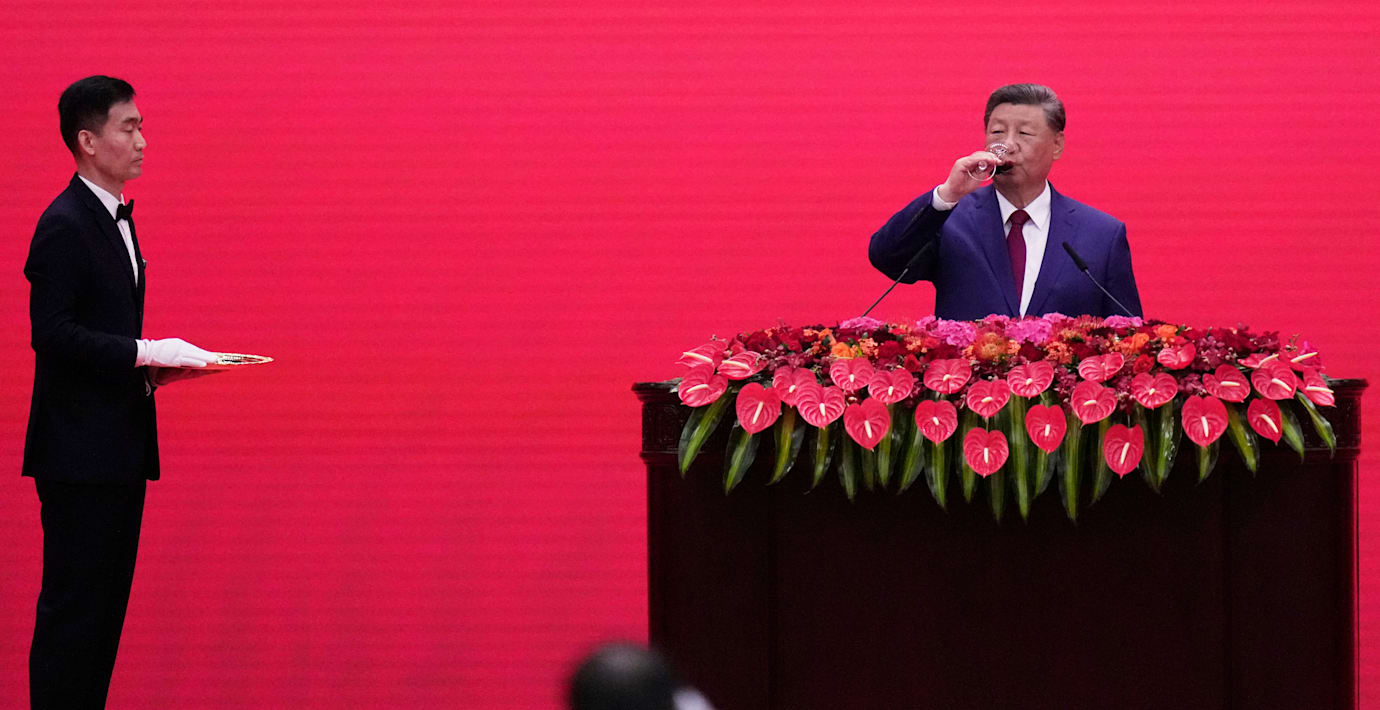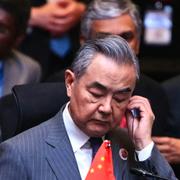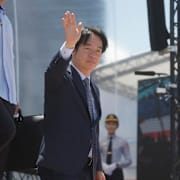
Källor: Xi hoppas få Trump att ändra Taiwanpolicy
Donald Trumps vilja att få till ett handelsavtal med Kina kan innebära att USA gör eftergifter i Taiwanfrågan. Det är åtminstone vad Kinas president Xi Jinping hoppas, enligt källor till Wall Street Journal.
Xi uppges vara missnöjd med USA:s nuvarande policy som är att landet ”inte stödjer Taiwans självständighet”. Han vill att USA förkunnar att man ”motsätter sig Taiwans självständighet”.
– Att driva in en kil mellan Washington och Taipei är den heliga graalen för Peking, säger Evan Medeiros, tidigare rådgivare i Obamaadministrationen, till tidningen.
Ett möte mellan Trump och Xi är planerat till Apeckonferensen i Seoul i november.
bakgrund
Kinas syn på Taiwan
Wikipedia (en)
The One China principle is the official position of the People's Republic of China (PRC) on the political status of Taiwan and cross-strait relations, and is also an important guideline of its foreign policy. The government of the People's Republic of China pursues Chinese unification based on this principle and has established it as a national policy through the Constitution of China and the Anti-Secession Law.
The standard statement of the Government of the People's Republic of China on the One China Principle is as follows:
There is only one China in the world. Taiwan is an inalienable part of China’s territory. The government of the People’s Republic of China is the sole legal government representing the whole of China.Guided by its One China principle, the government of the PRC opposes the Republic of China (or Taiwan) from developing diplomatic relations with other countries in the world, or any relations of a state-to-state nature, and opposes Taiwan from participating in the United Nations system and other intergovernmental international organizations. It requires that Taiwan can only participate in non-governmental international organizations under names that do not carry national characteristics, such as "Chinese Taipei" or "Taiwan, China".
This proposition is different from the "One China Principle" of the Republic of China (Taiwan), and has therefore long been not accepted by the government of the Republic of China. Before the 1970s, the ROC government used its "One China Principle" to implement a policy of " no coexistence between Han and traitors" and a closed policy against the government of the People's Republic of China, believing that it had the right to represent China and suppress the international space of the People's Republic of China. However, with the United Nations General Assembly Resolution 2758 in 1971 and Nixon's visit to China in 1972, the diplomatic situation on both sides of the Taiwan Strait changed, and the ROC's international diplomatic recognition decreased. With the change of the international situation after the end of the Cold War, the government of the Republic of China has stopped actively competing with mainland China for the right to represent China with the "One China Principle" since the 1990s, and instead emphasized the equality between the two sides of the Taiwan Strait; in contrast, the government of the People's Republic of China has suppressed the international space of the Republic of China with its own "One China Principle".
Omni är politiskt obundna och oberoende. Vi strävar efter att ge fler perspektiv på nyheterna. Har du frågor eller synpunkter kring vår rapportering? Kontakta redaktionen


